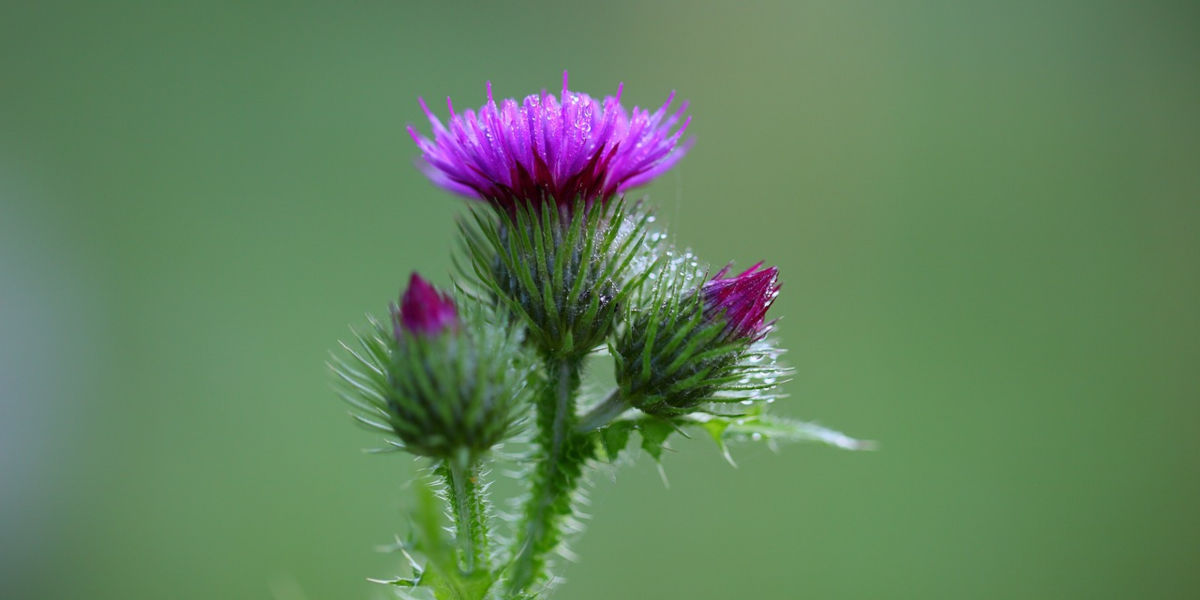Over the years, nature's treasure trove has proven to be an abundant source of healing and wellness. Among the many gems it holds, Milk Thistle stands out as a remarkable medicinal herb very few are known. This article will take you on a comprehensive journey, exploring its significant boon to liver health, the benefits of Milk Thistle supplements, and how much Milk Thistle one should take for optimal wellbeing.
Milk Thistle: A Guardian for Your Liver
Milk Thistle, scientifically known as Silybum marianum, has been cultivated for over 2000 years for its medicinal properties, particularly for its reputation as a potent liver protector. Native to the Mediterranean region, this prickly plant adorned with purple flowers is not just valued for its aesthetic appeal, but more importantly, for its silymarin content - the magical compound with exceptional medicinal abilities.
How Does Milk Thistle Boost Liver Health?
Milk thistle for liver health is not just a wellness buzzword. There is solid science to support these claims. Best known for its ability to counter the harmful impacts of alcohol and toxic substances on the liver, most of Milk Thistle's hepatoprotective properties can be attributed to silymarin. This bioflavonoid complex has anti-inflammatory, antioxidant, antifibrotic, and even regenerative properties that are beneficial to the liver.
Silymarin promotes liver cell reproduction by stimulating protein synthesis while acting as a toxin blockade at the cellular level. It prolongs the lifespan of these cells and slows the progression of liver-disease symptoms. It offers therapeutic benefits for various liver-related issues such as hepatitis, cirrhosis, jaundice, and gallbladder disorders.
Benefits of Milk Thistle Supplements
In addition to being a kind lookout for your liver, there are other benefits of Milk Thistle supplements that make it a worthy addition to your routine. While extensive research is ongoing to explore the full range of benefits, preliminary findings suggest that these supplements can aid in managing cholesterol levels and may even exhibit anti-cancer properties by slowing the growth of cancer cells. What's more, some studies suggest the feasibility of Milk Thistle in supporting weight loss and discouraging insulin resistance.
The antioxidant properties of silymarin can also guard the skin against damage from environmental stressors such as pollution and UV radiation, making Milk Thistle a holistic champion for your well-being.
How Much Milk Thistle To Take?
Understanding how much Milk Thistle to take is crucial in reaping its full benefits for liver health. Dosing can greatly fluctuate based on factors such as age, liver health status, the purpose of use, and more. It's crucial to remember that while Milk Thistle is a natural supplement, it's potent and should be used under professional health advice.
Typically, a standard dose ranges between 140 to 600 milligrams of silymarin, divided into two or three doses throughout the day. It is paramount to purchase from a reputable source to ensure the product contains the level of silymarin claimed on the label. Remember that self-medication can be unsafe, especially when dealing with specific health issues. Always consult a healthcare provider before starting any supplement regime.
Stay tuned till the end of this article where we delve deeper into the precautions and potential side effects associated with Milk Thistle supplements.
Milk Thistle is a potent herb native to the Mediterranean region. Besides its appealing appearance with bright purple flowers and prickly leaves, it boasts an impressive medicinal portfolio that dates back over 2000 years. The modern world is now singing its praises, particularly for its impact on liver health. But, what is the exact secret behind this liver health champion? What makes milk thistle a supplement worthy of a spot in your daily routine? Let's dive in.
Silymarin, a collection of flavonoids, is the magic behind the power of milk thistle. Its properties as an antioxidant, anti-inflammatory, and a detoxifier make this plant a potent liver protectant. Numerous research findings show silymarin's ability to guard the liver against toxins, promote liver cell regeneration, combat inflammation, and even hamper the scar tissue development — a typical characteristic of liver diseases such as cirrhosis.
Milk Thistle and Your Liver
An optimal functioning liver does an incredible job in your body. As a crucial organ in detoxification, it filters the blood from digestive tract before dispatching to the rest of the body. Besides, it metabolizes drugs, processes nutrients and produces essential proteins and enzymes. The role of liver is indispensable and hence, keeping it in pristine condition is pivotal. This is where milk thistle steps in.
Effectiveness of Milk Thistle
Many studies have examined milk thistle's effectiveness in individuals with alcohol-related or viral liver diseases, revealing encouraging outcomes. Some demonstrated that the herb could prolong the lifespan of patients with cirrhosis, while others noted reduced liver damage in hepatitis patients. Furthermore, milk thistle also showed promising results in protecting the liver from damage caused by industrial toxins, such as toluene and xylene.
Supplementing with Milk Thistle
There are several ways to include milk thistle in your diet. The easiest is in the form of supplements, which are available in stores and online. And guess what? They are not bitter, unlike other herbal supplements. However, make sure you're purchasing from a reputable brand, as purity and potency can differ greatly among products. For the best absorption, it's advised to take supplements alongside a fatty meal.
A Word of Caution
Although milk thistle poses little to no side effects, it's important to consult your healthcare provider before starting a new supplement regimen. Those with specific medical conditions, such as hormone-sensitive disorders, may need to avoid milk thistle. Similarly, it can interact with certain medications. So, keep your doctor in the loop.
In conclusion, milk thistle has solid scientific backing as a potent liver protector. While it certainly should not replace a healthy lifestyle, this plant could offer valuable support for those wanting to keep their liver in tip-top shape. This champion herb indeed deserves more recognition!




